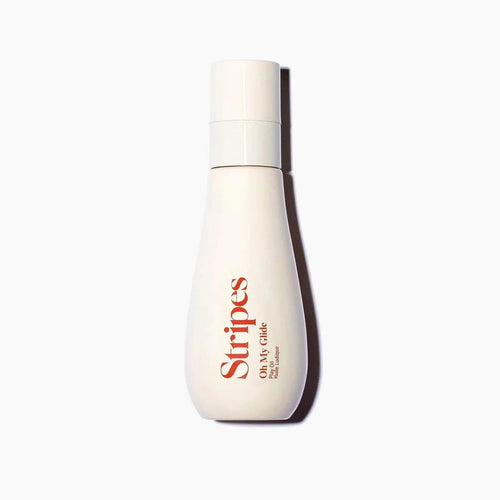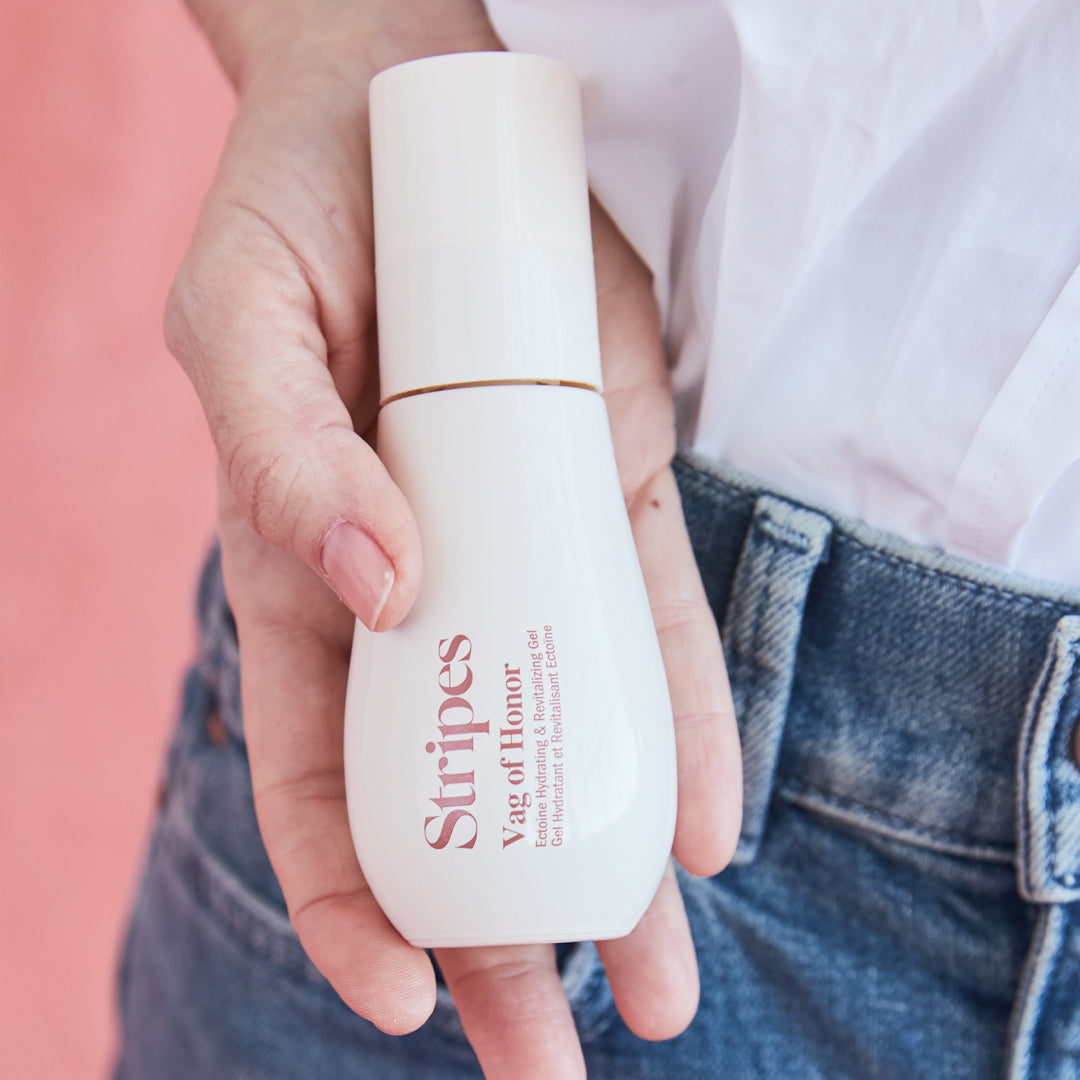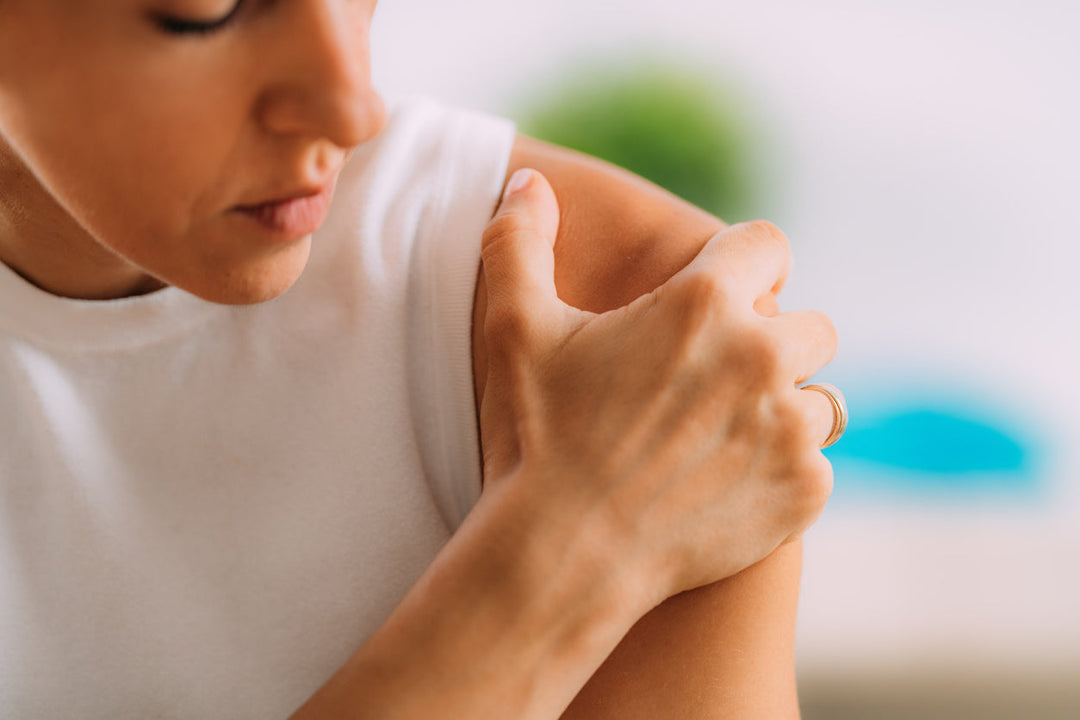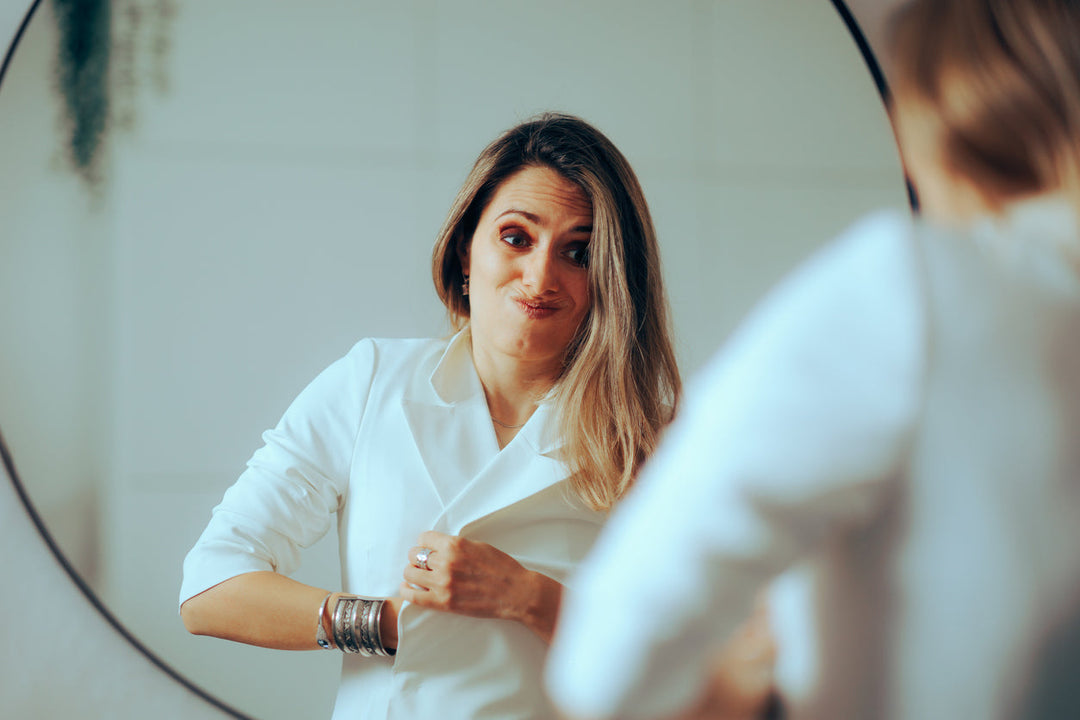Queer and Going Through Menopause? How to Advocate for Yourself
Editor’s note: This article focuses on lesbian, gay, queer, and bi cisgender women. While transmasculine people face similar difficulties as far as erasure from the dominant narrative of menopause, their medical concerns are somewhat different and will be explored in a separate article.
From insomnia and hot flashes to anxiety and loss of libido, the menopause transition comes with some seriously incapacitating symptoms — and many women feel like they have to go it alone. The lack of conversation around menopause affects pretty much everyone who goes through it, or one day will. But what if you have to deal with systemic health inequities at the same time?
Menopause in general is understudied and downplayed as a “life event.” For cis women in relationships with women, though, mis- or underrepresentation is more like no representation.
Iris Romero, professor of obstetrics and gynecology and dean for diversity and inclusion at the University of Chicago, says that menopausal queer women exist at the intersection of two research blind spots, which makes it especially likely that their concerns and needs will go unaddressed. Systemic inequities affecting LGBQ women only compound the problem, increasing the odds of tougher symptoms and serious health risks.
The best defense, if you identify as lesbian, gay, bisexual, or queer? Learn about the unique risk factors that affect you during the menopause transition, and how to advocate for yourself as it all unfolds.
What do we know about LGBQ menopause?
Existing as a sexual minority in society can make the already difficult menopause experience that much harder, largely because nobody talks about it. Take sex, for example. Doctors tend to focus on combating vaginal dryness and preserving the ability to have penetrative sex, but vaginal health is equally important for women who have sex with women. “Menopause ties into sexual function, but then nobody studies sexual function in lesbians,” says Romero. “Best practices with menopausal women is to ask how sex is going, but most lesbians, I suspect, aren’t even asked that question.”
This leaves the onus on the patient to bring it up themselves, which is difficult for sexual minority women who reasonably might be concerned about insensitivity or disrespect from providers if they talk about sex. A study comparing the sex lives of menopausal women married to other women with those of menopausal women married to men noted the lack of medical support queer women received for concerns about their sex lives. Not surprisingly, women in relationships with men were more likely to receive advice or be prescribed medication.
Because queer cis women are often less likely to get help for their shifting hormones, they’re subject to suffer in silence — with potentially dire consequences. The risk of various cancers also increases at midlife as sex hormones plummet, and if you’re not regularly seeing a doctor, missed screenings can pose a serious problem. “There’s reason to suspect sexual minority women may have an increased risk [for various cancers] and may not be coming as regularly for care,” says Jennifer Potter M.D., director of the LGBT Population Health Program and co-chair of Boston’s Fenway Institute.
Having sex with women during menopause can come with other unique baggage. For example, while it might be comforting to having a partner who intimately understands the difficulties of menopause, it can also magnify the relationship stressors if you’re both going through them at the same time. And for some queer couples, loss of libido comes with a stereotype of “lesbian bed death,” which can increase stress and anxiety (and we all know stress and anxiety don’t help other menopause symptoms). “If they weren’t haunted by these negative stereotypes, maybe [queer women] would be perfectly happy without sex in their marriages,” says Emily Paine, a sociologist at Columbia University who studies health outcomes among sexual minorities.
The best defense? A good doctor
Regardless of your orientation or relationship status, the best advice is always the same: Advocate for yourself. Romero advises people approaching menopause to be observant and proactive, and to seek treatment ASAP. Treatments like estrogen cream or hormone replacement therapy (HRT) can help, especially if you start them early, and your doctor can recommend lifestyle tweaks to stave off bothersome symptoms.
For queer women, though, the doctor’s office doesn’t always feel like a safe place. Concerns about the cultural competence of healthcare providers may dissuade queer menopausal women from seeking the care they need, which becomes a bigger problem as menopause symptoms and associated health risks increase at midlife.
What gay, bisexual, lesbian, and queer women need, at menopause and throughout their lives, is supportive and affirming health care and a doctor-patient relationship that encourages open communication and asking questions. This is the time, if you haven’t done so already, to shop around and find a doctor you trust.
Romero suggests checking the HRC Healthcare Index to find LGBTQ-competent providers in your area. Try to vet the provider in advance, especially if you live in a region that’s not as safe for sexual minorities. Consider asking for recommendations from other LGBTQ folks, and remember it’s always OK to switch providers if you feel uncomfortable. “What I tell patients is you only get one life, and you only get one body,” says Potter. “So please be proactive and ask all the questions that come to your mind.”By Lindsay King-Miller
Lindsay King-Miller is the author of Ask A Queer Chick: A Guide to Sex, Love, and Life for Girls who Dig Girls (Plume, 2016). Her writing has appeared in Bitch, Glamour, Vice, The Hairpin, and numerous other publications. She lives in Denver with her partner and their two children.
Looking to connect with a community of women who know what you're going through? Check out The Hot Spot!











